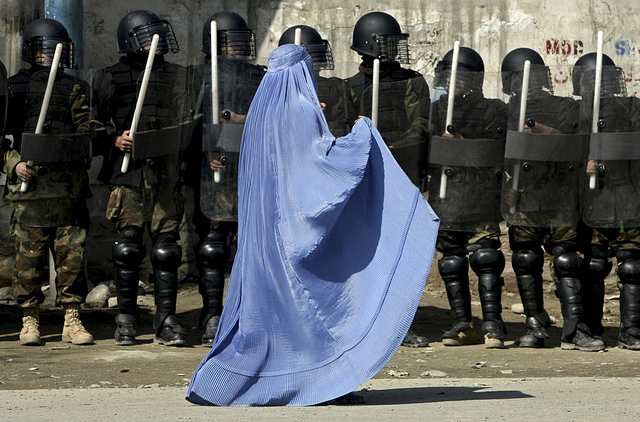- About
- Topics
- Picks
- Audio
- Story
- In-Depth
- Opinion
- News
- Donate
- Signup for our newsletterOur Editors' Best Picks.Send
Read, Debate: Engage.
| June 10, 2020 | |
|---|---|
| topic: | Human Rights |
| tags: | #Afghanistan Independent Human Rights Commission (AIHRC), #human rights violation, #torture, #Afghan refugees |
| located: | Afghanistan, Iran, Pakistan |
| by: | Shadi Khan Saif |
Even prior to the added restrictions on travel caused by the novel Coronavirus, Afghan refugees in neighbouring countries remained on the receiving end of discrimination and persecution for much of their stay there. The new and crippling hardships coupled with existing hardships have made life miserable both for Afghan refugees as well as the desperate Afghan migrants seeking refuge in the region and beyond.
Noor was in quest for a relatively safer yet difficult and secluded life, the like that of millions of his war-weary country mates in neighbouring Iran and Pakistan are enduring. He knew risks associated with the irregular migration and crossing border without proper documents via human traffickers, but the desperate would-be refugee knew little of the ferocity added to the scenario by the Coronavirus pandemic.
“We were caught by the Iranian border guards, and kept in custody for one night when they tortured us, and in the morning forced us to jump in the Hari Rod River (on the border between the two countries)”, he told FairPlanet.
They were heading to a country that has been dubbed as the epicentre of Coronavirus in the region, but the desperate refugees only had on top of their mind a livelihood away from clutches of insurgency at their home country. In Iran, however, the strict quarantine measures coupled with struggling economy and certain unconfirmed reports of stereotyped hatred directed towards the Afghan refugees in regard to the COVI-19 meant they were not welcomed, literally caught between the devil and the deep blue sea.
The issue of torture and drowning of dozens of Afghan migrants has stirred diplomatic row between Tehran and Kabul.
Earlier this month, Afghanistan and Iran failed to progress on probe at Commissioners' level into the drowning of migrants resulting in matters left for diplomats to resolve. According to the foreign ministry spokesman Graan Hewad, the Afghan commissioners have handed over the investigation to the diplomatic authorities on the basis of a border agreement between the two countries to take the matter further.
"The Iranian authorities have informed the Embassy of Afghanistan in Tehran that they too have appointed a diplomatic team to further address the matter", he said.
Noor’s fellow refugee, Sher Aqa said the men had endured the harsh Afghan winter in joblessness for months to eventually make it to Iran for work, mostly hard labour in the construction or agriculture sectors. He said only 23 among the 57 Afghan refugees ‘drowned’ in the river by the border survived. “We were told at the gun to either face the bullets or throw ourselves in the river”, he recalled.
Despite rejection by the Iranian authorities, these claims by the migrants are largely backed by the Independent Human Rights Commission of Afghanistan.
Having talked to the survivors of this incident, the AIHRC has confirmed the beating, torturing and drowning of several Afghan refugees by Iranian security forces. “This incident occurred on May 01, 2020 in Karez-e-Elyas village of Gulran District in Herat which shares border with Iran”, it said in a report while regarding such brutal behaviour by Iranian security forces a serious violation of human rights principles and values. “In addition, the rights of refugees and immigrants, and the commitment of states to international conventions have been violated”, it said.
The Iranian version of the incident is that the drowning has taken place across the border within the jurisdiction of Afghanistan with absolute no involvement by its border guards let alone taking the migrants into custody and torturing them. Iran’s state-owned IRNA news agency has dubbed it as ‘propaganda’ to harm ties between Kabul and Tehran.
Since the outbreak of Coronavirus in neighbouring Iran, over 150,000 Afghans were deported or returned voluntarily to their war-ravaged country, the UN migration agency has confirmed. On top of this, over 70,000 more stranded Afghans returned from neighbouring Pakistan during the four-day temporary opening of the main Torkham and Chaman crossing points earlier this month.
These refugees, most of whom are sole breadwinners of their entire families, have returned to Afghanistan when according to the government’s own estimates some 42 per cent of the entire population lives below the national poverty line while the COVID-19 cases continue with an upward trajectory.
By copying the embed code below, you agree to adhere to our republishing guidelines.

